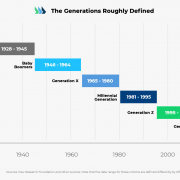International Day of the Girl Child
Today is International Day of the Girl Child. Launched in 2012 by the United Nations as an annual initiative, the day aims to highlight and address the needs and challenges girls face, while promoting the empowerment of girls and young women across the globe.
According to the U.N., educated and skilled workers are in great demand, but roughly a quarter of young people – most of them female – are currently neither employed or in education or training.
Under the theme: “With Her: A Skilled GirlForce”, the 2018 campaign marks the beginning of a year-long effort to address increasing female unemployment rates and gender bias that prevents women from pursuing certain career paths.
On this special day, the Student Research Foundation would like to call attention to some of the leading organizations with which we work and their dedication to expanding learning and career opportunities for girls.
National Center for Women & Information Technology (NCWIT) – NCWIT is the only national non-profit focused on increasing the meaningful participation of all women — at the intersections of race, ethnicity, class, age, sexual orientation, and disability status — in the influential field of computing, particularly in terms of innovation and development. Supporting a community of more than 1,100 organizations, NCWIT unifies change leaders in an action-oriented movement to create national change.
National Girls Collaborative Project (NGCP) – NGCP brings together organizations throughout the United States that are committed to informing and encouraging girls to pursue careers in science, technology, engineering, and mathematics (STEM). Using a tested and comprehensive model of change built on collaboration at state and local levels, NGCP delivers high-quality research-based professional development and maximizes access to shared resources, exemplary practices, program models and products to expand and strengthen STEM-related opportunities for girls and women.
In addition, NGCP operates and manages The Connectory, the most comprehensive collection of STEM opportunities and programs for families to discover local STEM opportunities for the children in their lives and for program providers to find partners with which to collaborate.
The National Alliance for Partnerships in Equity (NAPE) – NAPE is a consortium of state and local agencies, corporations, and national organizations. Through its four lines of business—professional development, technical assistance, research and evaluation, and advocacy—NAPE strives to achieve its mission of building educators’ capacity to implement effective solutions for increasing student access, educational equity, and workforce diversity.
These domestic organizations are addressing a critical need. While women in the US have made notable progress toward educational and professional equity during the past century, the persistence of the gender gap in STEM fields poses challenges of a different degree than faced by women and girls in other countries. In a world driven by technology, closing this gender gap is a critical step toward economic equity.
A Student Research Foundation survey of 16,129 students in STEM classrooms during Fall 2017 showed persistent gender gaps in:
- STEM subject interest
- STEM self-efficacy
- STEM career aspirations
These gender gaps are particularly noteworthy in a population that is still engaged in STEM in light of their enrollment in STEM classes.
Students in these STEM classes were asked to indicate their favorite STEM subject. When presented with a list of 11 STEM disciplines, along with options of “Other STEM” and “None,” striking gender gaps emerged that have implications for career pathways.
- Males and females favored different STEM subjects. Biology was the overwhelming favorite of females (40% citing it as a favorite subject compared with 17% of males). Engineering was the overwhelming favorite of males (42% citing it as a favorite compared with 11% of females).
- Females are more likely than males to choose “None” as their favorite (19% vs. 11%).
STEM self-efficacy was lower among girls than boys. While 33% of high school boys surveyed in STEM classrooms were extremely or very confident their STEM skills and knowledge would allow them to enter a STEM career, only 26% of girls were. (This pattern persisted across racial and ethnic groups.) A gender gap in STEM confidence persists even among:
- Self-described “A” students, with boys being more confident than girls (45% vs. 34%, respectively, being extremely or very confident).
- Students who took AP STEM classes, with boys being more confident than girls (48% vs. 37%, respectively, being extremely or very confident).
- Self-described “A” students who have taken AP STEM classes, with 54% of boys compare with only 44% of girls being extremely or very confident of their STEM skills and knowledge.
Not surprisingly, given these patterns, student respondents enrolled in these STEM classes showed sharp differences in career aspirations. Only 29% of female respondents aspired to a career labeled as “STEM” — compared with 66% of male respondents.
However, girls surveyed planned to use their STEM knowledge to achieve different career goals than their male peers. Fifty-four percent of girls, compared to only 20% of boys, surveyed in STEM classes aspired to a Health Science career.
On this International Day of the Girl Child, these gender differences in STEM attitudes remind of us of the challenges that continue to face women and girls.
Related Posts
Who Is Preparing for STEM Careers? Our Research Finds Surprising Gaps
Giving Voice to Student Career Aspirations
Women’s History Month and ‘Women’s Work’: The More Things Change, the More They Remain the Same
We Invite You to Participate in this Year’s Study. . .
Participate in the National Career & College Pathway Study to gain new insights about making career and educational decisions that align with your interests, passions, and aptitudes.










Leave a Reply
Want to join the discussion?Feel free to contribute!